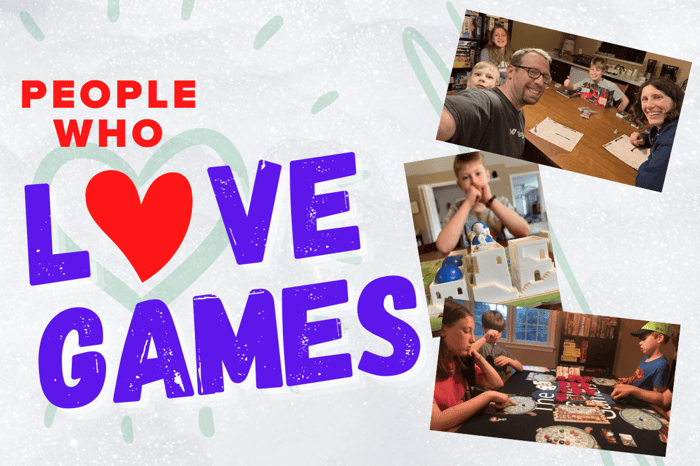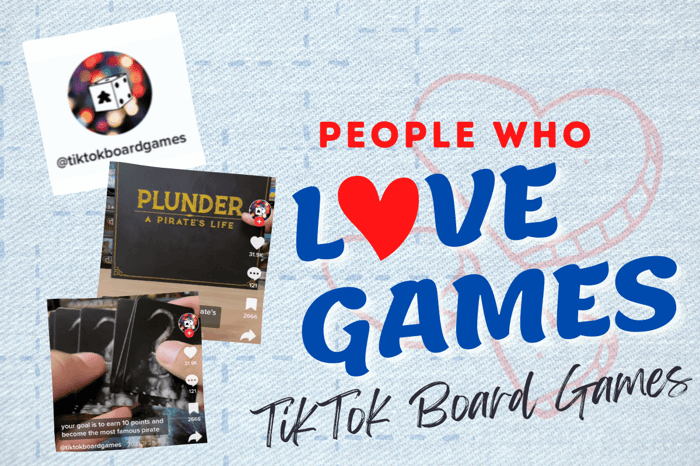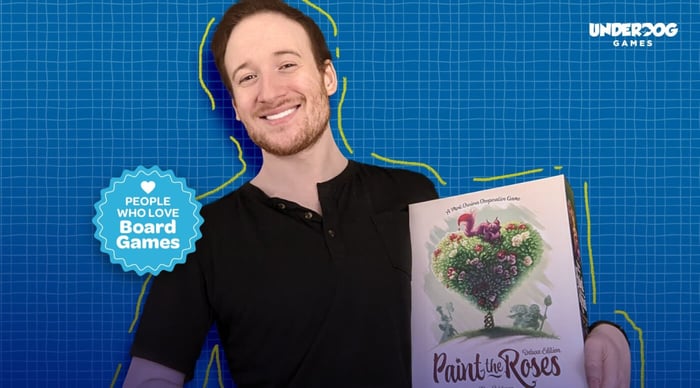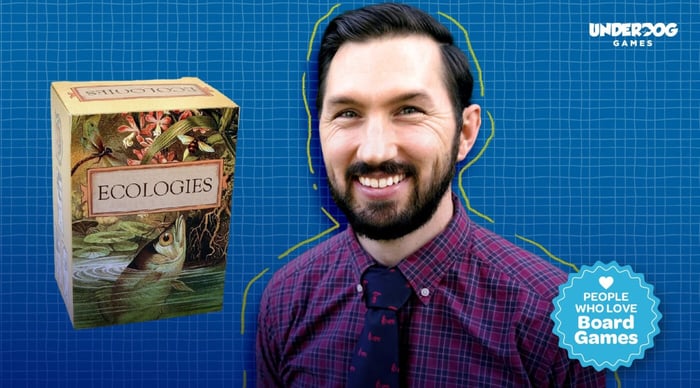Andrew and Anitra Smith created their website, The Family Gamers, from their love of playing board games with their three kids and using them in gameschooling. They suspected other parents loved playing board games with their familes, too, and wanted to help them find the right games. They've been writing game reviews and podcasting for years now and have even joined the Dice Tower Network and appeared on television, in the local paper, on board game panels, and more. While they enjoy playing and sharing a wide variety of board games with their audience, they especially love educational games that can enhance curriculum and learning.
Here, Andrew and Anitra share a few family board game recommendations and insights on the board game industry.
What's your involvement in the board game industry?
We've been involved in the board games industry since 2015. We host The Family Gamers Podcast and review games on our website, The Family Gamers.
What's a game you remember playing as a kid?
Anitra played Troke with her parents–it's kind of like Castle meets Chinese Checkers. Andrew played all sorts of games, but remembers playing the floor game Weapons and Warriors with his brothers the most.
What's a recent board game you tried and loved?
Kingdomino Origins. We didn't love some of the iterations like Queendomino, and although we liked Dragomino, our kids out grew it. Kingdomino Origins iterates on the original perfectly and flexes up and down for simplicity or complexity depending on how you're feeling that day.
What's a go-to board game for you?
For our family, it has to be the Unmatched series. There are so many different characters that you can play at different times depending on how you feel.
Why do you enjoy board games so much?
Board games bring people together. Unlike a video game, where you're usually playing together but not even looking at each other, or a TV show or movie, where you're cooperatively experiencing something else, board games actively encourage interaction with other players. They allow you to fail in a safe space and teach through gameplay.
What's a guilty pleasure board game that you play?
Oh gosh. I think the closest thing is Cinco Linko. I feel a little weird about it, but it's just so simple to throw down and get started.
What's a project you've been working on lately?
Andrew is actually working on his own board game (Actually two, but one actively). It's an action selection/tableau building game–think Machi Koro with extra pieces.
Do you have any advice for others who want to work in the game industry?
Be you. There are lots of people, especially after this pandemic, that are getting into the industry. It's a super hard industry to be in, especially on the publishing side, but also for content creators because the market is pretty saturated. Find something you love about the industry and something you love doing, and find your voice doing that thing. If it's always a slog, you won't be able to keep up with it.
What would you like to see change about the board game industry?
The hobby board game industry still needs to mature. Some of this can be driven by organizations like GAMA (The Game Manufacturers Association), but if you've ever been part of the toy industry, you've seen that they've hewn best practices into the way they do business.
Hobby board gaming just isn't there yet. It's been around for years and is growing at an exponential rate, but the trade organization hasn't caught up with it yet (though they're working on it), and it's very hard to establish a standard way of doing business. This means all of the different components of the industry, from publishing to marketing to content creation, are all trying to figure out their own way, because it's hard to iterate on so many different things. On the business side, trade organizations could enable publishers to bargain collectively with, for example, shipping organizations. Selfishly, I wish board games boxes would all be based on the same unit size. They don't have to be all the same size, but all be based on something so there's some consistency!
What's a hobby you're into that's NOT related to board games?
Andrew is a 10-pin bowler. He's been doing that since he was a kid. He coaches now, too. Anitra loves to sing and performs regularly. She'll be singing with her choir in Carnegie Hall in the fall!
Tell us about a cool game we should know about. Why do you love it?
Recently we fell in love with a super simple game from AMIGO called Magic Mountain. It's almost like a Plinko machine in game form. You're dropping marbles down a hill, hoping they hit wizard students. The students move down the hill when they're hit. Your goal is to get four students down the hill before the marbles hit three witches and they move down the hill instead. We love it because it's instantly understandable, goes super fast, and it's simple. There's no explaining at all, really. It's just a silly bit of fun for the family.
You've been gameschooling. What does that look like for your family?
We're still fairly new to "formal" homeschooling, but even when our kids were little, I was passionate about using games to learn facts and reinforce skills. I call it "gameschooling" when we're playing games that have a connection to topics we're learning, like science or history.
What do you look for in a game to use in gameschooling?
Since our gameschooling is for older kids, we're not really reinforcing reading or math. Instead I look for games that get them thinking more about a topic. It's more about why something was included in a game (e.g. why is the Pan Am map centered around the north pole?) and getting them excited to learn more.
What's 1-2 of your favorite games to use in gameschooling and why?
We've gained a lot from the science games from Genius Games, but Periodic was a huge hit for us. It really helped solidify how the periodic table represents the relationships between elements. The Unmatched series from Restoration Games has been a great way to introduce some classic literature, as well as mythology from many cultures. The characters are so lovingly crafted–the more you know about them, the more you appreciate what each can do in the game. It has encouraged us to learn more about Sun Wu-kong, Achilles, Sinbad, and H.G. Wells' Invisible Man.
What do you want us to know about you?
We're a family of five that lives in the Northeast US that loves to play games together!
Do you have a project, website, or social media you'd like others to know about?
You can find all our reviews online at thefamilygamers.com. You can find our podcast on all the major podcast services by looking for The Family Gamers Podcast. We're on social media (most of it) at @familygamersaa.
Anything else you'd like us to know?
We're just happy to help people learn about the value of board gaming for their family! Even though it has grown by leaps and bounds lately, there's so much more growth in this space. Play games with your kids!
Want to learn more about gameschooling? Check out our blog post here with gameschooling tips from a school psychologist and homeschool mom.





